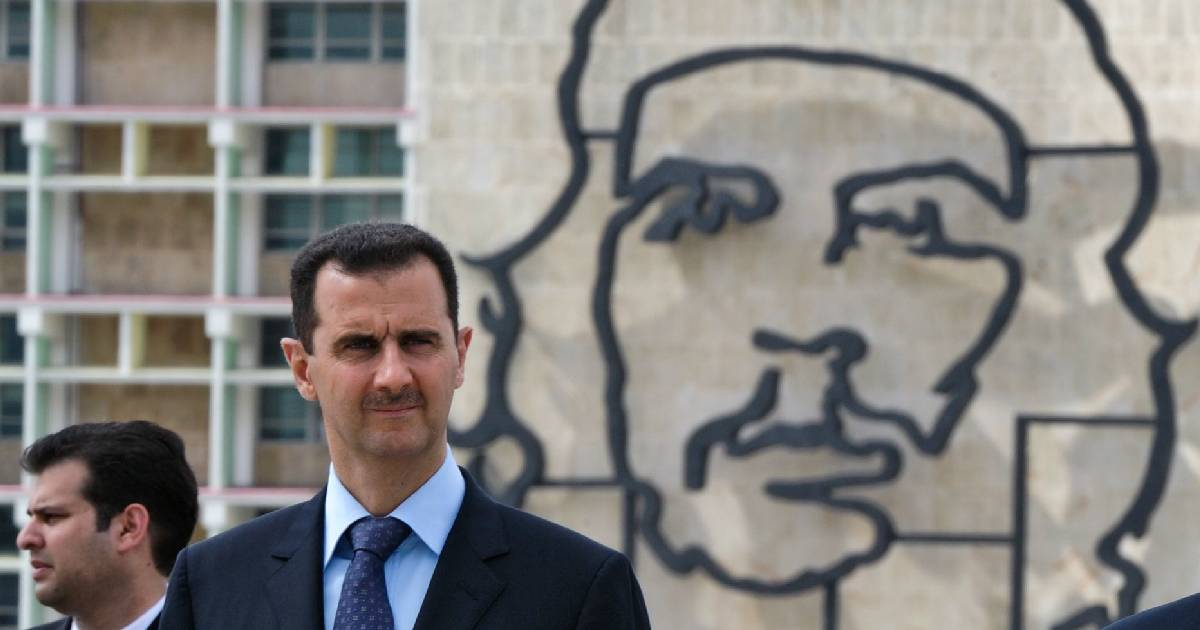The Cuban government has remained conspicuously quiet following the overthrow of Bashar al-Assad, the Syrian dictator, whose family ruled for over five decades with an iron fist. While Miguel Díaz-Canel and Bruno Rodríguez Parrilla, Cuba's Foreign Minister, have been tweeting about relations between Cuba and the Caribbean Community (CARICOM), their silence on Syria's situation has sparked interest among analysts and Cuban dissidents. This reticence is notable given Assad's close ties with the Cuban regime.
Historically, Havana has been a staunch ally of the Syrian dictatorship. During the 1973 war against Israel, Cuba sent a tank brigade to support the then-Syrian dictator Hafez al-Assad, Bashar's father. Fidel Castro once described the relationship between the two nations as a "solid friendship," noting that "Syria consistently supports Havana's political stances."
In 2010, Bashar al-Assad's official visit to Cuba further cemented the "deep and unwavering bonds of friendship" between the two governments. This alliance was evident on the international stage, such as in March 2021, when Cuba voted against a United Nations Human Rights Council resolution that condemned human rights abuses and war crimes attributed to the al-Assad regime.
Strategic Silence or Mere Oversight?
The Cuban regime's silence is particularly striking given that just days prior, it had publicly expressed support for Assad amidst escalating political tensions in Syria. On December 4, Foreign Minister Rodríguez Parrilla tweeted about his phone conversation with Syrian Foreign Minister Bassam Sabbagh, reaffirming "Cuba’s support and solidarity with the Syrian people and government against terrorist attacks on various cities, emphasizing the need to preserve the sovereignty and territorial integrity of the sister nation."
As the international community digests this unexpected shift in the Middle Eastern political landscape, Cuban state media have only shared the basic news of Assad's ousting, offering little more to their manipulated audience. Canal Caribe focused on reactions from various Arab countries, while Cubadebate went a step further, informing Cubans that Assad had been granted asylum in Moscow.
Implications for Cuba's Global Standing
With global politics in flux following Assad's removal, the Cuban regime, known for its authoritarian traits and repression of domestic dissent, seems to be employing a calculated strategy rather than a simple oversight. This silence raises questions about the future of its international alliances and the impact on its already tarnished political image.
Impact of Assad's Fall on Cuba’s International Relations
Why did Cuba maintain silence over Assad's overthrow?
Cuba's silence is likely a strategic move to avoid drawing attention to its own authoritarian practices and to reassess its diplomatic stance amidst shifting global alliances.
How has Cuba historically supported Syria?
Cuba has historically supported Syria by sending military aid during conflicts and voting against international resolutions condemning human rights abuses by the Assad regime.
What are the implications of Assad's asylum in Moscow?
Assad's asylum in Moscow could signal a shift in Middle Eastern alliances and may force Cuba to reassess its position in the region, potentially impacting its diplomatic relations.
